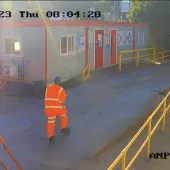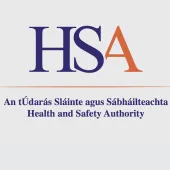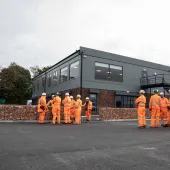Parker Hannifin fined £1 million following worker’s death

HSE says firm’s ad hoc approach to managing dangerous tasks resulted in worker losing his life
PARKER Hannifin Manufacturing Ltd, the Hertfordshire-based hydraulics, pneumatics and filtration specialists, have been fined £1 million after a worker was crushed to death by falling machinery.
Forty-eight-year-old Colin Reddish was involved in moving a large CNC milling machine within the company’s Grantham factory on 30 April 2015 when it overturned and killed him.
The machine had been lifted using jacks and placed on to skates in order to give Mr Reddish access to use an angle grinder to cut and remove the bolts that had secured it to the floor. He was working alone at the time of the incident.
Lincoln Magistrates’ Court heard how Parker Hannifin had not ensured that workers who were tasked with lifting and moving the machine were sufficiently trained and had the right experience and training for carrying out such a potentially dangerous activity.
The Health and Safety Executive (HSE) found during its investigation that the work was not properly planned. The centre of gravity of the machine had not been properly assessed and taken into account before the move took place, resulting in an unsafe system of work being used for the job, with fatal consequences.
Parker Hannifin pleaded guilty to breaching Reg. 3(1) of Management of Health and Safety at Work Regulations 1999 and Section 2(1) of the Health and Safety of Work etc. Act 1974. The company was fined £1 million for breaching Section 2, and ordered to pay full costs of £6,311 and a victim surcharge of £120.
HSE Inspector Martin Giles said: ‘Colin Reddish’s death was entirely preventable. Parker Hannifin had already tried unsuccessfully to lift the machine using a forklift truck but instead of learning from this failure they carried on. Their ad hoc approach to managing dangerous tasks resulted in one of their workers losing his life.
‘All companies can learn from this incident and make sure they have properly risk assessed the situation before they start, and that they have trained staff with the right type of experience to carry out the task in hand safely. Taking an extra few minutes to properly think through a problem could save a worker’s life.’









